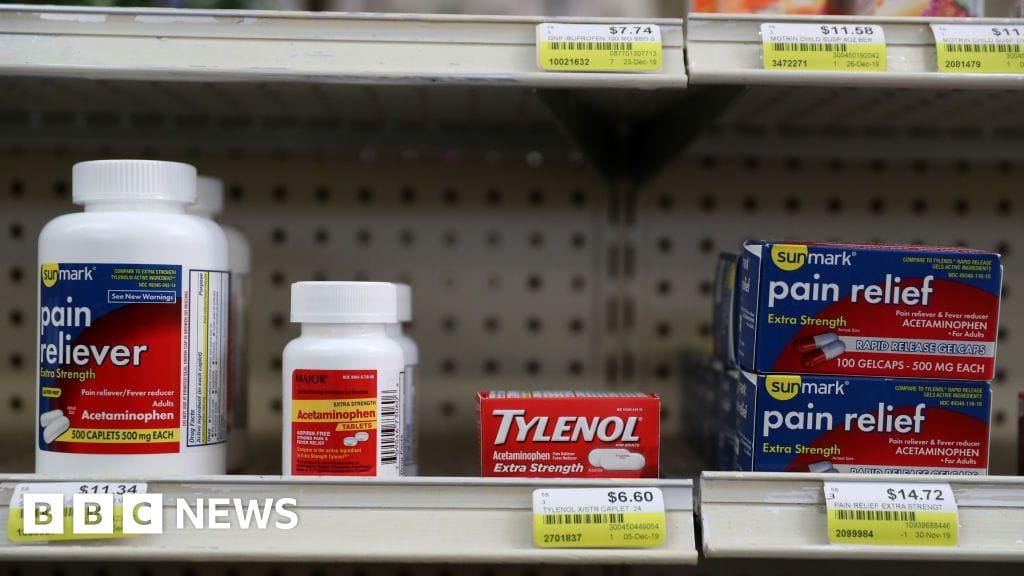Hiltzik: More on the dismantling of U.S. healthcare
It’s not my habit to preface my columns with “trigger alerts,” so this is a first:
If talking about circumcision makes you cringe, feel free to move along.
If, on the other hand, you wish to understand what Robert F. Kennedy Jr. was talking about during a White House meeting Oct. 9 when he tried to connect circumcision with autism, follow along with me.
The U.S. health disadvantage threatens the country’s global competitiveness and national security, as well as the hopes and prospects of future generations
— Dept. of Health and Human Services
The offhand reference to circumcision’s possible role in autism by Kennedy, Trump’s secretary of Health and Human Services, is part and parcel of Kennedy’s documented assault on science-based medicine.
His campaign encompasses attacks on COVID-19 vaccines, which have been shown over the years to have saved millions of people from death, hospitalization or long-term disability; his firing members of professional advisory boards at his agency and replacing them with anti-vaccine activists; his promotion of unproven “cures” for vaccine-preventable diseases; and his inaction in the face of a nationwide surge in cases of measles, a disease that was declared eliminated in the U.S. in 2000.
Let’s pause for a few words about the broader consequences of the erosion of our public health infrastructure. It not only exposes Americans to more disease and more serious disease, but has profound economic effects.
That’s true worldwide, but especially in the U.S., which spends much more per capita on healthcare than other developed countries, for lower results. Undermining the existing system for partisan ends won’t make the picture look any lovelier.
“The U.S. health disadvantage threatens the country’s global competitiveness and national security, as well as the hopes and prospects of future generations,” according to a 2021 paper from the Department of Health and Human Services, the agency that Kennedy now leads.
“U.S. employers depend on a healthy workforce to maximize productivity and minimize healthcare costs,” the paper stated. “Population health also affects the consumer market, whereby the demand for nonessential products and services suffers when families are struggling with illnesses and much of their disposable income is required for medical expenses.”
The chaos imposed on our public health system under the Trump administration only intensifies the damage.
On Friday, hundreds of employees at Kennedy’s agency, including the Centers for Disease Control and Prevention, abruptly received layoff notices. Some were hastily informed that their firings were erroneous, but the experience rattled the CDC, an agency tasked with overseeing the national response to seasonal respiratory illnesses at a time when those illnesses typically spike.
“The damage is beyond repair,” Demetre Daskalakis, who resigned as director of the National Center for Immunization and Respiratory Diseases, a unit of the National Institutes of Health, over conflicts with Kennedy, told CNN. “Crippling CDC, even as a ploy to create political pressure to end the government shutdown, means America is even less prepared for outbreaks and infectious disease security threats.”
That brings us back to Kennedy’s preoccupation with autism. He has claimed that the autism rate is on the rise due to “environmental toxins” such as childhood vaccinations and the use of Tylenol — or acetaminophen, its generic name — by mothers during pregnancy.
As I’ve reported, however, the roots of the increase in reported autism rates in recent decades are well understood: They have much to do with a broader definition of autism, which is widely described today as “autism spectrum disorder,” and with improved access to screening and diagnostic services by formerly overlooked groups such as Blacks, Hispanics and other nonwhite cohorts.
Kennedy’s comment about circumcision came during a White House Cabinet meeting. At first, he and Trump traded misconceptions they had previously aired about Tylenol use by pregnant women — Trump asserting that “obviously,” the rise in autism rates is “artificially induced” and adding, “I would say don’t take Tylenol if you’re pregnant, and … when the baby is born don’t give it Tylenol.”
That advice dismayed physicians, who say that fevers during pregnancy are a greater risk for the unborn and that acetaminophen is safer than alternative fever-reducing medicines.
Kennedy then injected circumcision into the discussion. “There’s two studies that show children who were circumcised early have double the rate of autism,” he said. “It’s highly likely because they were given Tylenol.”
Unsurprisingly, Kennedy’s remark got extensive play in the news media, prompting him to try walking it back via a tweet on X. Rather than accept responsibility for his confusing words, he responded with Bondi-esque truculence, writing: “As usual, the mainstream media attacks me for something I didn’t say in order to distract from the truth of what I did say.”
He even took arms against the Murdoch-owned New York Post, which posted its story with the headline, “RFK Jr. says Tylenol after circumcisions linked to autism,” and proceeded to debunk the claim.
In trying to clarify his point, however, Kennedy dug himself a deeper hole. According to his tweet, the two studies he was referring to at the cabinet meeting were a Danish study from 2015 and a non-peer-reviewed preprint posted online in August, which refers to the Danish paper. Kennedy mischaracterizes both.
Contrary to Kennedy’s implication, the Danish study did not address the use of acetaminophen (called “paracetamol” in the paper) in connection with circumcision. The reason, its authors wrote, was that “we had no data available on analgesics or possible local anesthetics used during ritual circumcisions in our cohort, so we were unable to address the paracetamol hypothesis directly.”
They did note, however, that the acetaminophen theory had only “limited empirical support.” In other words, evidence was lacking. Anyway, the Danish study was criticized — in the same journal that had published it — for its reliance on a very small sample of children.
As for the preprint, contrary to Kennedy’s description, it did not identify the Danish paper as offering “the most compelling ‘standalone’ evidence” for an autism-acetaminophen link. That language referred to three studies, one of which was the Danish paper. Of the other papers, one was based on later interviews with parents. The other was a study of the effects of acetaminophen on 10-day-old mice, not human children.
I asked Kennedy’s agency to clarify his claim and to explain the discrepancies between his words and the papers themselves, but received no reply.
To summarize, Robert F. Kennedy Jr., the nation’s top federal healthcare official, conjured up a connection between circumcision and autism via a relationship between circumcision and Tylenol that is unsupported by the research he cited. Indeed, the Danish paper describes the idea that boys undergoing circumcision invariably are given acetaminophen for pain as “a questionable assumption.”
In searching for empirical support for the acetaminophen theory, moreover, the Danish paper cited a 2010 paper funded by NIH that cautioned: “No evidence is presented here that acetaminophen in any way causes autism. … This hypothesis is largely based on multiple lines of often weak evidence.” Anyway, the paper was focused on a possible link between acetaminophen use and asthma, not autism.
Sadly, this sort of mischaracterization of research described as “a rigorous scientific framework” (RFK Jr.’s words) isn’t surprising coming from today’s Department of Health and Human Services. This is the agency, it may be recalled, that in May issued an “assessment” of the health of America’s children that cited at least seven sources that did not exist.
Nothing can stop unwary parents from relying on the judgment of Donald Trump or Robert F. Kennedy Jr. to make healthcare decisions for their infants and children. But they should be warned: They do so at their own and their offsprings’ risk.












